1. Alice Coachman
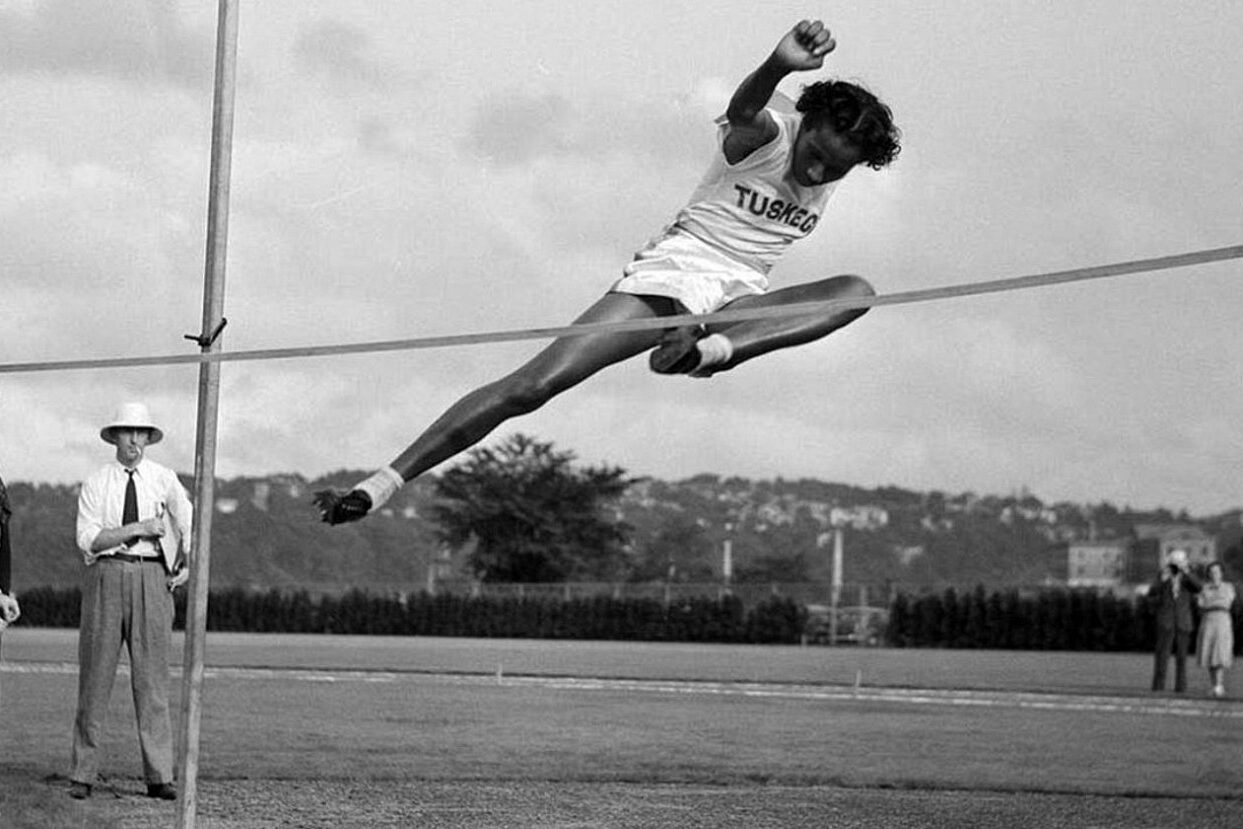
Alice Coachman made history at the 1948 London Olympics by becoming the first Black woman to win an Olympic gold medal. She triumphed in the high jump, jumping 5 feet 6 ⅛ inches, and her victory was a monumental achievement not only for her but for Black women in sports. Despite her success, Coachman’s accomplishments were often overlooked by the media, who were slow to recognize the contributions of Black athletes during that time. Growing up in Georgia during the segregation era, Coachman faced racial and gender discrimination, but she was determined to break barriers. As a young athlete, she faced limited opportunities to compete against others, as many events were segregated. But Coachman, who started her athletic career by running in dirt roads and practicing on makeshift tracks, continued to push forward and prove her abilities. She trained by herself and worked relentlessly, even though her potential was often minimized says the National Women’s History Museum.
Her perseverance paid off when she became a dominant force in track and field. Before her gold medal win, Coachman set a world record in the high jump at the Amateur Athletic Union (AAU) Championships. She was also the first African American woman to sign a commercial endorsement deal, an incredible feat for that time. After her Olympic success, Coachman’s fame grew, but she was still often ignored in mainstream sports history. However, her impact reached far beyond the track. She later became an educator and coach, inspiring future generations of Black athletes to follow in her footsteps. Coachman’s accomplishments continue to serve as a reminder of the barriers she broke in the face of adversity, and her legacy paved the way for many who came after her.
2. DeHart Hubbard
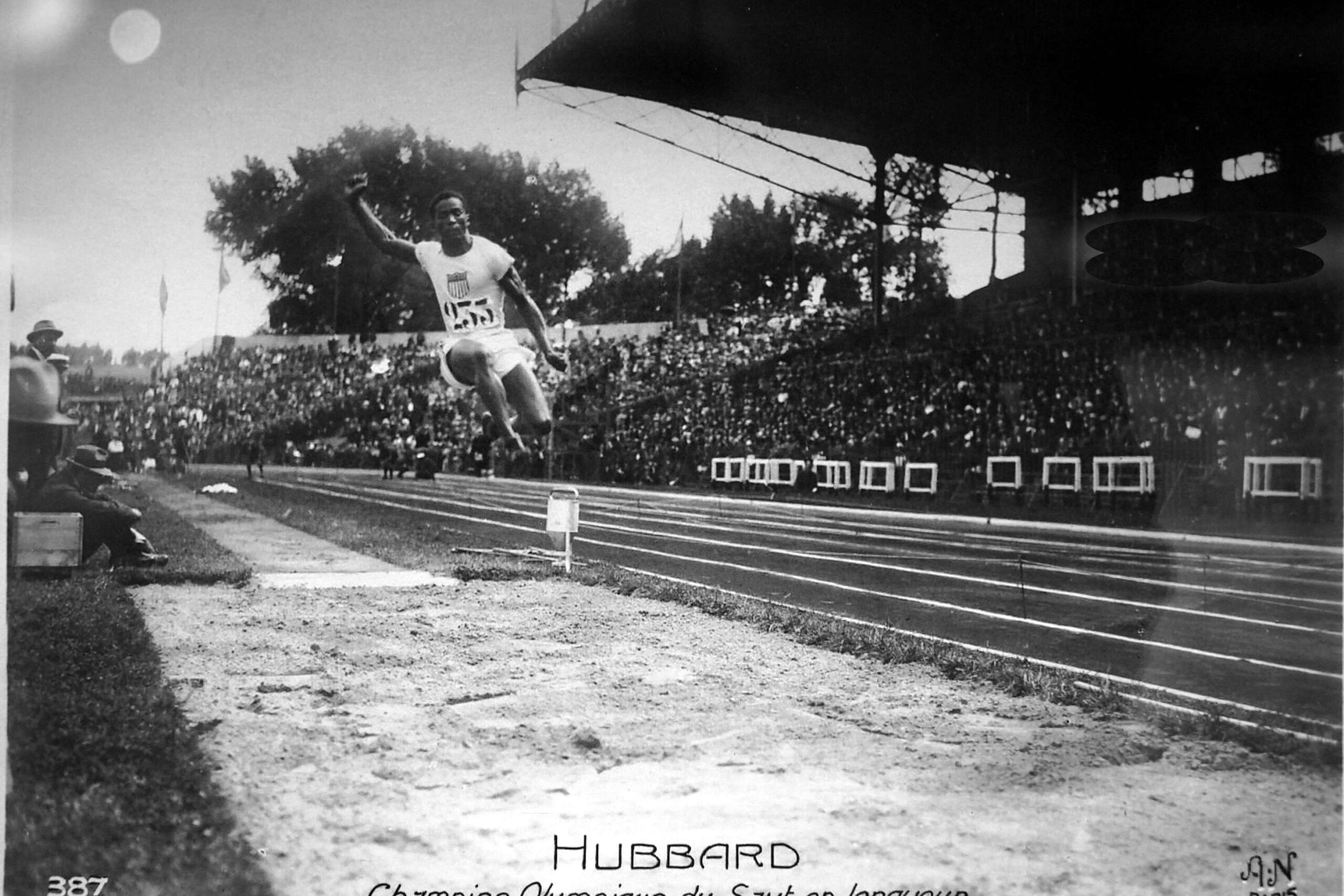
DeHart Hubbard was the first African American man to win a gold medal in the long jump at the Olympics, a significant achievement that was largely underappreciated during his time. He made history in the 1936 Berlin Olympics, where he shocked the world by defeating Germany’s top jumper, Luz Long, who was a favorite to win. Hubbard’s victory was not just a triumph of athleticism but of overcoming racial and social barriers. Growing up in a racially segregated society, Hubbard was faced with immense challenges, including limited access to quality training facilities and opportunities to compete explains USA Track & Field. Despite this, his raw talent and relentless work ethic shone through, and he would go on to make history. His victory in Berlin not only earned him a gold medal but also put him in the spotlight as one of the few Black athletes competing on the global stage.
Following his Olympic win, Hubbard’s career was not as celebrated as it should have been. He continued to compete in track and field events but often faced discrimination from both the media and fellow athletes. Despite the racial barriers, Hubbard managed to achieve success and even set an American long jump record that lasted for over 20 years. He later went on to have a career as a coach and mentor, helping other athletes, especially Black ones, find their way in sports. In many ways, Hubbard’s story is one of resilience and determination in the face of societal constraints. Though his name may not be as well known as some of his contemporaries, Hubbard’s legacy has endured, especially for those who understand the deep significance of his achievements.
3. Paul Robeson
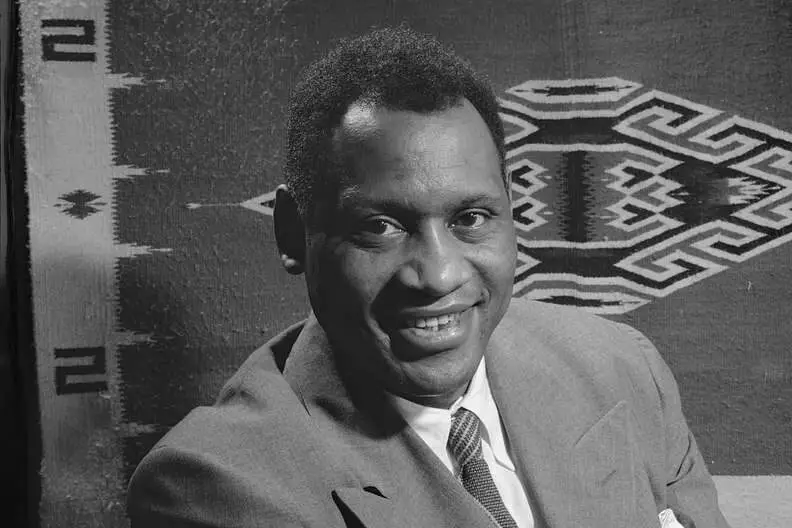
Paul Robeson is widely regarded as one of the greatest all-around athletes and intellectuals of the 20th century, yet his groundbreaking career is often overshadowed by his political activism. Robeson excelled in a number of sports, including football, where he played as an All-American at Rutgers University. His athletic prowess earned him a spot in the professional football leagues, but Robeson’s true calling was in the arts, where he became a renowned singer, actor, and civil rights activist. However, it was his athletic achievements that first brought him to the public’s attention, making him one of the most notable Black athletes of his time. Robeson’s early success was groundbreaking, as it took place in an era where Black athletes were often excluded from mainstream competitions adds the National Football Foundation.
While Robeson’s athletic career may have been brief, his impact on sports and society was immense. His name became synonymous with excellence, but it was his stance on racial justice that truly defined his legacy. Robeson used his platform as an athlete and entertainer to speak out against racial discrimination and fight for civil rights. He famously refused to perform in segregated venues and faced tremendous backlash for his activism. Despite the hostility and public opposition, Robeson remained steadfast in his beliefs, even at the cost of his career and reputation. His contributions to both sports and social justice are often forgotten, but his influence is felt even today in the way athletes use their platforms for activism.
4. Charley Grant

Charley Grant was one of the first African American baseball players to compete in the major leagues, though his story has largely been forgotten. He played for the New York Giants in the early 20th century, before Jackie Robinson famously broke the color barrier in 1947. Grant’s time in the majors was brief, and his story is often overshadowed by those who came after him. However, Grant’s presence on the field was revolutionary, as he was one of the first to challenge the racial norms of professional baseball. He was known for his exceptional speed and skill, but his career was cut short due to the racial discrimination of the time. Grant’s legacy is often overlooked, despite the fact that he paved the way for future generations of Black baseball players to follow says WCPO 9 News.
Though his career in the majors was short-lived, Grant’s significance cannot be understated. He faced enormous challenges just to play at the highest level, including enduring the hostile environment of a segregated sport. His ability to perform under such difficult circumstances speaks to the depth of his talent and resilience. After his time in the majors, Grant continued to play in the Negro Leagues, where he remained a standout player. His contributions to the game, though often forgotten, helped to lay the foundation for the eventual integration of professional baseball. Without athletes like Charley Grant, the groundbreaking accomplishments of players like Robinson might not have been possible.
5. Jackie Robinson
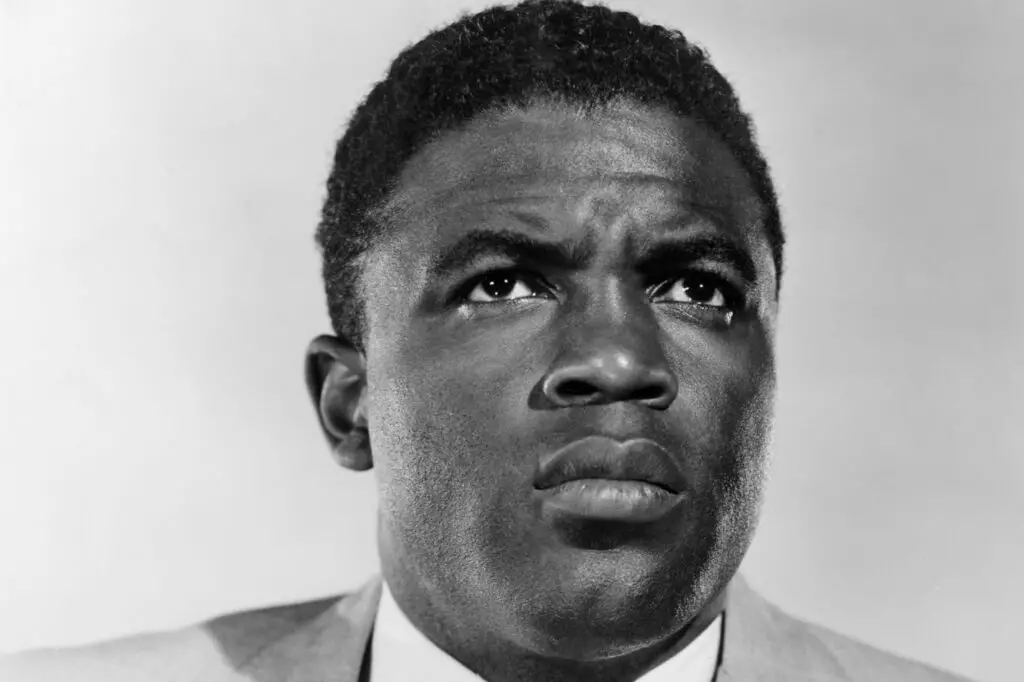
Jackie Robinson’s name is synonymous with breaking barriers in sports, but his journey to becoming the first African American to play in Major League Baseball was filled with struggles that many may not realize. In 1947, Robinson broke the color barrier when he joined the Brooklyn Dodgers, challenging the entrenched racial segregation of the time says Baseball Hall of Fame. The pressure he faced was unimaginable, as he endured racist taunts and threats from fans, players, and even coaches. Yet Robinson handled it all with grace, never retaliating and proving through his actions that Black athletes could excel at the highest levels. His talent on the field was undeniable, and his contributions to baseball are legendary. Robinson was named Rookie of the Year and later became an All-Star, but his influence went far beyond his performance in the game.
Robinson’s significance was not just in his athletic ability but in his role as a pioneer for racial equality in sports and society. His courage in the face of adversity made him an icon for the civil rights movement. He became an outspoken advocate for equality and justice, using his fame to push for change both within the sports world and beyond. Robinson’s legacy is often seen through the lens of his accomplishments on the field, but his impact as a trailblazer for social change is just as important. He paved the way for other Black athletes to follow, making it possible for future generations to break down barriers in all sports. Robinson’s courage, both on and off the field, continues to inspire athletes today.
6. Wilma Rudolph
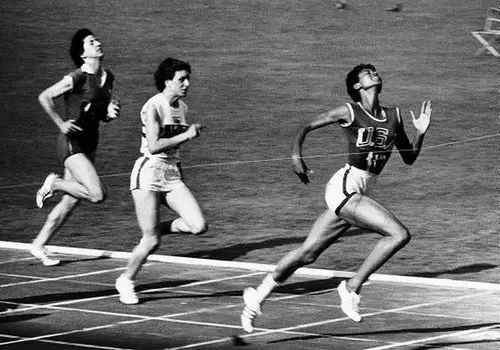
Wilma Rudolph’s path to becoming the fastest woman in the world was not an easy one. Growing up in Tennessee in the 1940s and 50s, she faced a host of obstacles, from polio to racial segregation. But despite these early setbacks, Rudolph went on to achieve greatness, becoming the first American woman to win three gold medals in a single Olympic Games. Her triumphs in the 1960 Rome Olympics made her a household name, and she became an international symbol of perseverance and success. Rudolph’s victories in the 100 meters, 200 meters, and the 4×100 meter relay were groundbreaking, and she did so with a determination that would change the landscape for female athletes forever.
Her achievements were not just a personal victory but a triumph for Black women in sports, who had been historically excluded from the spotlight. Despite her Olympic success, Rudolph faced racism and sexism throughout her career. She was often underestimated and had to fight for respect in a world that was not always ready to accept her brilliance. After her retirement from competitive athletics, Rudolph became a passionate advocate for youth sports and education, helping to inspire the next generation of athletes. Her impact on the world of athletics was undeniable, and her legacy continues to inspire those who seek to overcome the challenges of inequality.
7. Earl Lloyd
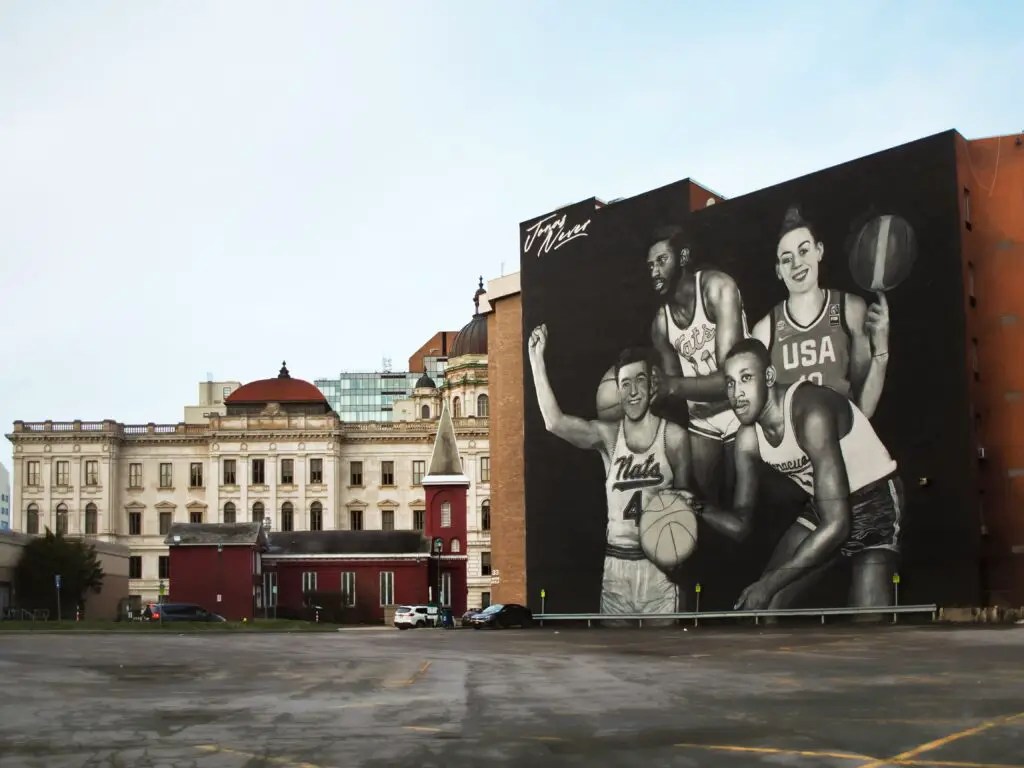
Earl Lloyd made history in 1950 when he became the first African American to play in the NBA. However, his contributions to the game are often overlooked, even though his role in breaking down racial barriers in basketball was groundbreaking. Lloyd made his debut for the Washington Capitols, marking a historic moment in professional sports. The challenges he faced as one of the first Black players in a segregated league were immense, but Lloyd persevered, carving out a place for himself in the NBA. Though he only played for a few seasons, Lloyd’s impact on the game was immense. He faced hostility from fans, teammates, and opponents, but his skills and determination helped to prove that Black players belonged in the NBA.
After his playing career ended, Lloyd continued to make history by becoming one of the first Black assistant coaches in the NBA. His contributions to the league’s integration are often underappreciated, but his legacy paved the way for future generations of Black athletes in basketball. Lloyd’s journey from trailblazer to coach demonstrated his unwavering commitment to the sport. Despite the hardships he faced, his name is forever etched in the history of the NBA. His story is a testament to the power of perseverance and the importance of breaking down racial barriers in sports.
8. Tommie Smith
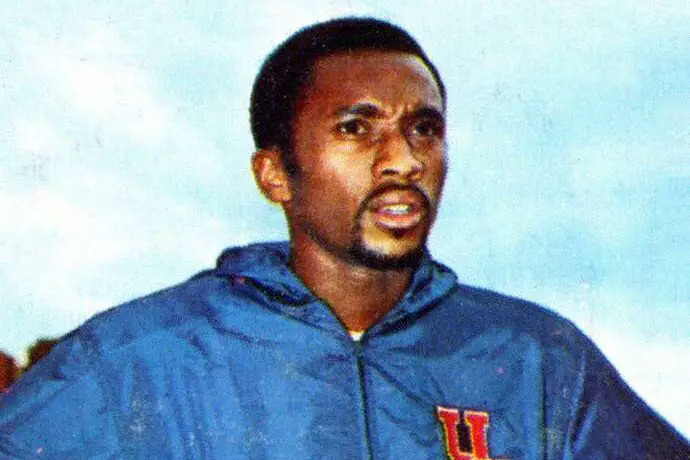
Tommie Smith’s iconic protest at the 1968 Olympics made headlines around the world, but his athletic achievements are just as significant. Smith won the gold medal in the 200-meter race, setting a world record in the process. However, it was his silent protest on the medal stand, where he and fellow athlete John Carlos raised their fists in a Black power salute, that made him a symbol of resistance against racial injustice. The protest cost Smith and Carlos their medals, but it also cemented their places in history as pioneers for civil rights. Smith’s athletic ability was extraordinary, and his Olympic victory was the culmination of years of hard work and dedication. Despite the controversy surrounding his protest, Smith remained steadfast in his belief that athletes had a responsibility to use their platforms for change.
After the Olympics, Smith faced backlash, and his career was impacted by the protest. However, he continued to fight for equality throughout his life. Smith’s story is a reminder of the power of athletes to influence social change, even when their actions come at great personal cost. His gold medal and his fist-raising gesture remain a powerful moment in the history of the Olympics, representing the intersection of sports and politics. Smith’s legacy is not just defined by his athleticism, but by his courage to stand up for what he believed in, inspiring future generations to do the same.
9. Madeline Manning Mims

Madeline Manning Mims made history in 1968 when she became the first African American woman to win an Olympic gold medal in track and field. Her victory in the 800-meter race at the Mexico City Olympics was groundbreaking and came at a time when Black athletes, particularly women, were often overlooked. Mims’s win was a triumph not only for herself but for African American women in sports who were striving for recognition and respect. Her career was filled with remarkable accomplishments, including several national championships and world records. Despite her success, Mims faced challenges and discrimination throughout her career, especially when it came to sponsorship opportunities. The media often ignored her achievements, but Mims remained focused on her goals and continued to push for excellence.
Mims’s Olympic gold was a moment of pride for the African American community, as it showcased the talent and determination of Black women. After her Olympic career, Mims went on to coach and mentor the next generation of athletes. She became a prominent advocate for youth sports and women’s athletics, dedicating her life to empowering young people through sports. Mims’s story is a reminder of the barriers Black women have had to break down in sports, and her achievements continue to inspire future generations of athletes.
10. Spencer Haywood
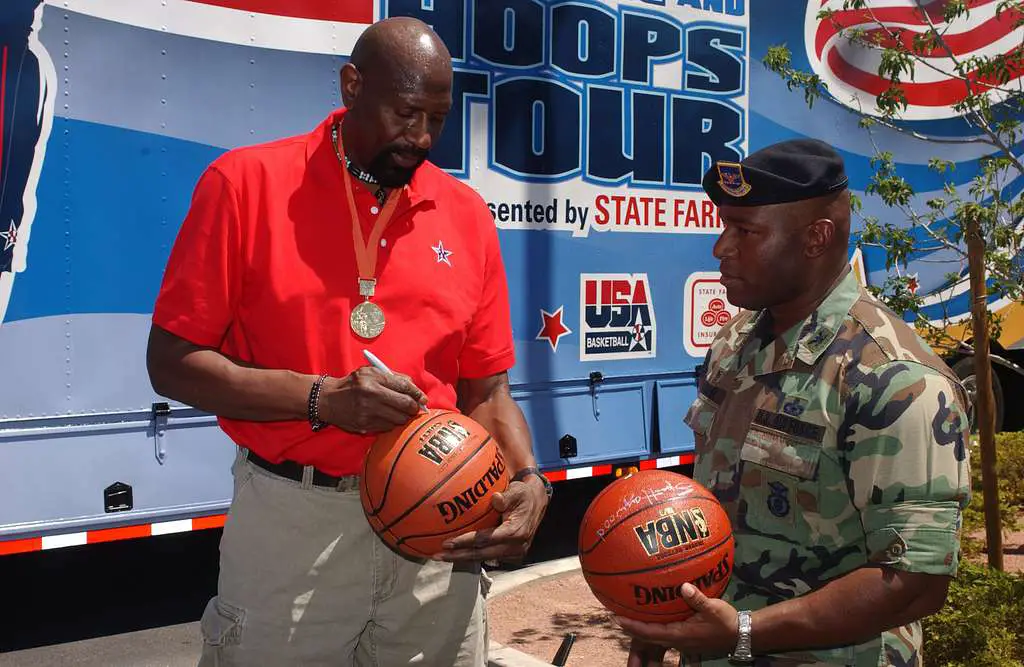
Spencer Haywood was a force to be reckoned with in basketball, but his story is often overshadowed by the more famous names in the NBA. Haywood’s impact on the game of basketball is undeniable, as he was one of the first players to challenge the league’s eligibility rules, making the jump from college basketball to the NBA at just 20 years old. His legal battle led to a landmark Supreme Court case, Haywood v. National Basketball Association, which changed the rules for young players entering the league. Haywood’s contributions to the sport were groundbreaking, and his ability to score and rebound made him a dominant force during his career. Despite facing challenges as one of the few Black players in the league at the time, Haywood proved that his talent and work ethic were unmatched.
After his NBA career, Haywood continued to inspire with his dedication to the game. He became a mentor to younger players, and his influence on the sport extended beyond his playing days. Haywood’s contributions to basketball were often overshadowed by those who came later, but his legacy is a crucial part of the league’s history. His legal victory opened doors for countless other young players to follow their dreams and play in the NBA. Haywood’s story is one of perseverance and trailblazing, and it has left an indelible mark on the sport of basketball.
11. Major Taylor
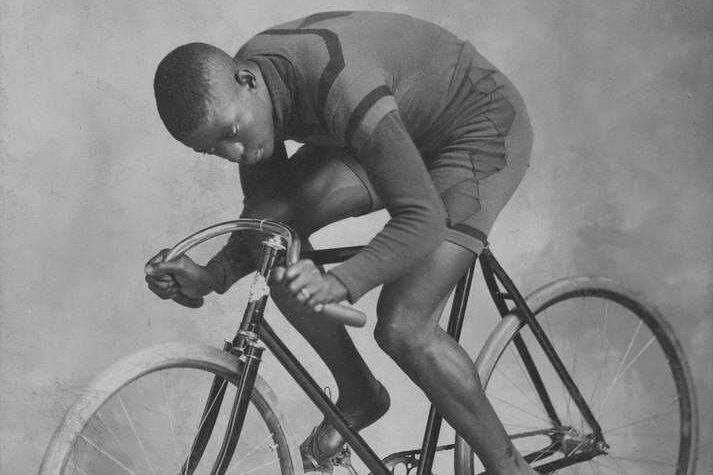
Major Taylor was one of the earliest African American athletes to break down racial barriers in sports, and his achievements in cycling are often overlooked in the broader history of American athletics. Taylor became the world’s first Black cycling champion in 1899, at a time when racism and segregation were rampant in the United States. Despite facing discrimination at every turn, Taylor managed to dominate his sport, winning several national and world titles. He became a symbol of Black excellence in athletics, using his platform to fight against the racial prejudice that sought to keep him out of the sport. His achievements were groundbreaking, but Taylor’s story is largely forgotten today, overshadowed by the rise of other Black athletes in later decades.
Taylor’s contributions to cycling are often overshadowed by the successes of other athletes, but his story is one of resilience. He faced constant hostility from other cyclists, who often refused to compete against him due to his race. Yet, Taylor persisted, breaking records and winning championships. He later became a vocal advocate for racial equality, using his fame to address the injustice he faced in the world of cycling. Taylor’s impact on the sport is undeniable, but his legacy has often been forgotten or overlooked. Nevertheless, his trailblazing career paved the way for future generations of Black athletes to compete at the highest levels.
12. Althea Gibson
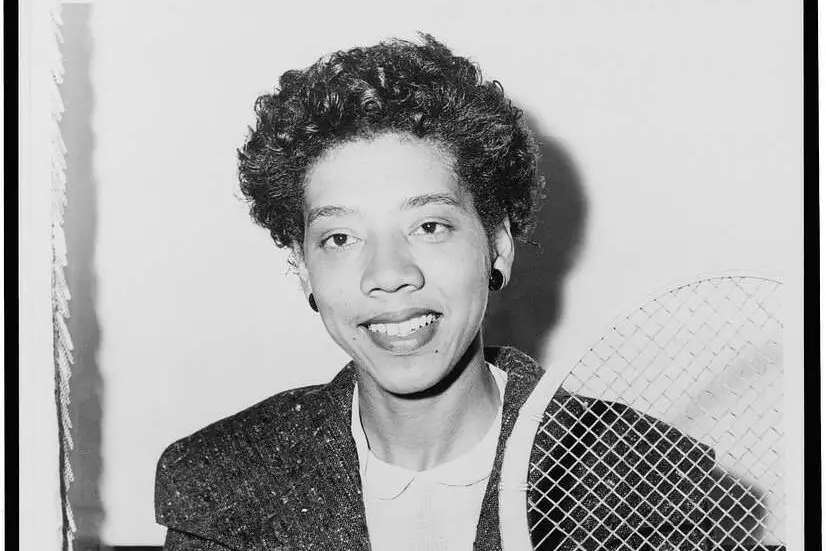
Althea Gibson’s accomplishments in tennis are nothing short of remarkable, and her achievements are all the more impressive given the racial barriers she had to overcome. Gibson was the first African American woman to compete in the U.S. National Championships (now known as the U.S. Open) and Wimbledon, where she would go on to win both tournaments. Her victories in the 1950s were groundbreaking, as they took place in a sport that was almost entirely segregated. Gibson’s success in tennis was a testament to her hard work and resilience. She faced hostility from both fans and competitors, but she never let that deter her from pursuing excellence.
After her groundbreaking wins, Gibson continued to inspire others with her resilience. She was not just a tennis champion but a symbol of racial progress in sports. Her achievements helped to break down the barriers that had previously excluded Black athletes from certain sports, and her legacy continues to inspire today’s generation of tennis players. Gibson’s story is one of perseverance in the face of adversity, and she remains an icon of Black excellence in athletics.
13. Jim Brown
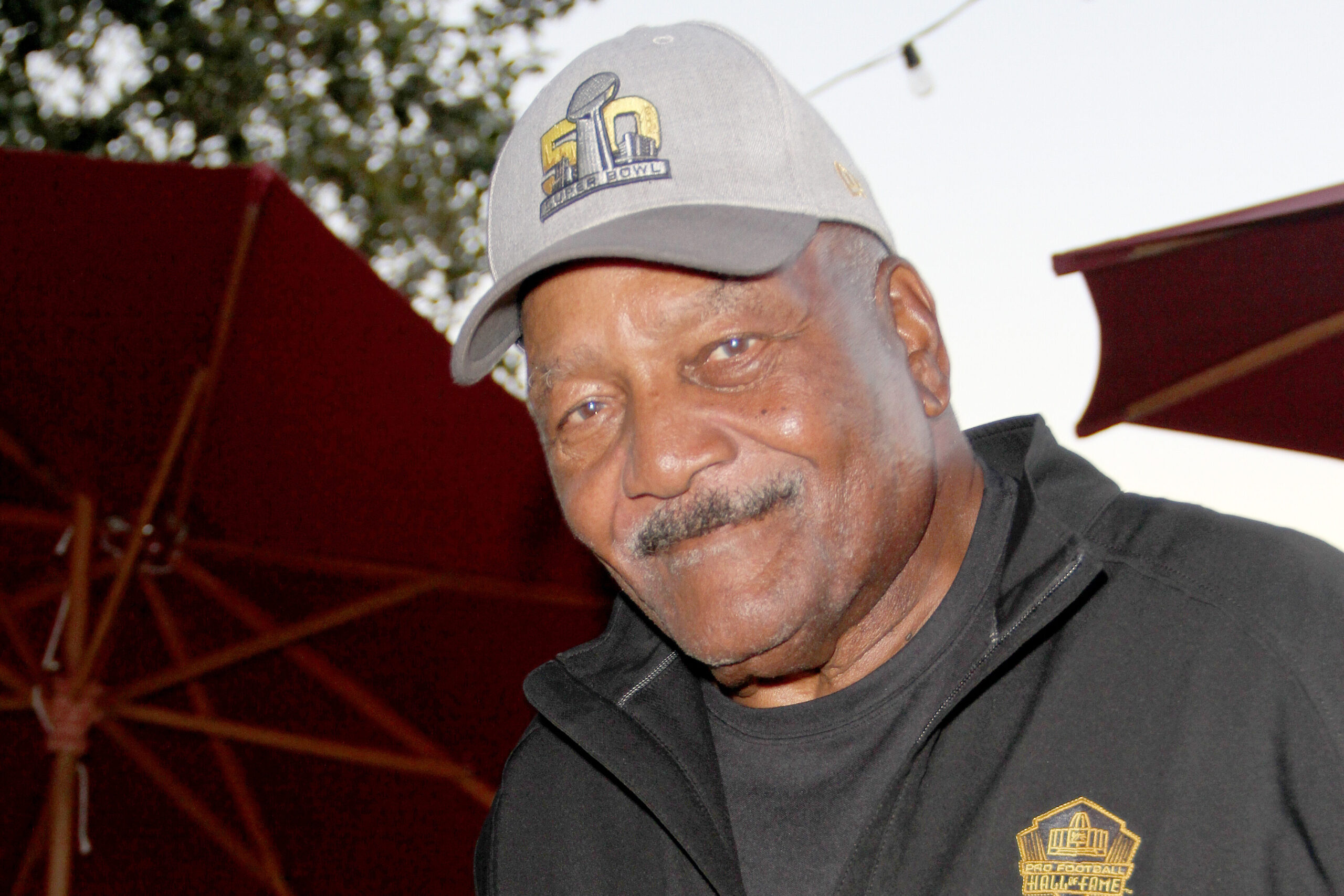
Jim Brown is often regarded as one of the greatest football players of all time, but his significance goes beyond his success on the field. Brown was a standout running back for the Cleveland Browns, dominating the NFL with his athleticism and skill. He was a nine-time Pro Bowler and is considered by many to be the best player in the history of the league. However, it was his role as an activist and social justice advocate that truly set him apart. Brown used his platform to speak out against racial inequality and injustice, both during and after his playing career. He was one of the first athletes to speak openly about the importance of Black athletes using their influence for change.
Despite facing resistance from some of his peers and the public, Brown remained committed to his cause. He was a pioneer not only on the football field but in the world of activism, helping to pave the way for future generations of athletes to speak out about issues of race and inequality. Brown’s legacy is defined by his dual impact on both sports and society. His athletic brilliance is unquestionable, but it is his courage to stand up for what is right that has made him a lasting figure in American history.
14. Black Hawk

Black Hawk, also known as Peter Durand, was one of the first African American athletes to compete in the 19th century, making significant strides in the world of professional boxing. His career spanned from the late 1800s to the early 1900s, a time when racism and discrimination were rampant in all aspects of American life, including sports. Durand, who fought under the name Black Hawk, was a formidable force in the boxing ring. His record includes numerous victories against both Black and White fighters, and he gained a reputation for his speed and strength. Despite facing immense challenges in an era when Black athletes were not given the respect they deserved, Black Hawk’s achievements helped to carve a path for future generations of African American boxers.
Though his career was largely overshadowed by the rise of other, more well-known boxers, Black Hawk’s contributions to the sport are undeniable. He was one of the first African Americans to gain recognition in a sport that was often dominated by White athletes, and his legacy laid the foundation for later champions like Joe Louis. His impact on boxing was significant, even though he was largely forgotten by history. Black Hawk’s story is one of perseverance in the face of overwhelming adversity, and he remains an important part of the history of African American athletes who defied the odds to achieve greatness.
